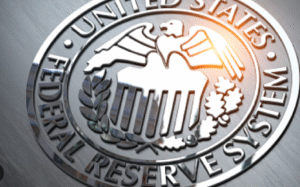$SPY $DXY $META
#USEconomy #Inflation #InterestRates #Recession #FederalReserve #StockMarket #MarketAnalysis #Investing #Crypto #Geopolitics #Meta #TechStocks
The U.S. economy is showing signs of a slowdown, with economists forecasting weaker growth in the coming quarters while inflation remains persistent. Recent economic data indicates that GDP expansion is likely to cool due to restrictive monetary policy and slower consumer spending. The Federal Reserve’s efforts to curb inflation through aggressive interest rate hikes have dampened business investment, and the labor market is also showing signs of softening. Although the central bank has paused rate hikes, markets remain cautious about the potential for further tightening if inflation proves stickier than expected. The latest Consumer Price Index (CPI) data revealed a slight uptick in inflation, complicating the Fed’s path to a soft landing. The bond market has reacted accordingly, with U.S. Treasury yields fluctuating as investors reassess rate expectations. Equities, particularly in interest rate-sensitive sectors like technology, have faced added volatility.
Geopolitical developments are adding to economic uncertainty as the U.S. intensifies its campaign against Yemen’s Houthi rebels in the Red Sea. The ongoing military tension has disrupted global shipping routes, leading to increased transportation costs that could pressure inflation further. Energy markets have reacted as well, with oil prices rebounding amid fears of supply chain disruptions. Brent crude and WTI futures have seen gains as traders factor in risks of escalating regional conflict. The potential for energy price shocks could complicate the Federal Reserve’s policy outlook, as inflationary pressures from higher fuel costs might persist. This geopolitical instability also affects investor sentiment, influencing risk assets such as equities and cryptocurrencies, where added volatility is apparent.
At the same time, Meta Platforms ($META) is experiencing a shift in its strategic and political stance as the company’s leadership moves toward a more conservative-leaning outlook. CEO Mark Zuckerberg has reportedly aligned with advisors advocating for policies that favor free-market capitalism and deregulation, a shift that could impact how the company approaches content moderation and advertising policies. This rightward shift could attract businesses and political campaigns from conservative circles, but it also risks alienating a portion of Meta’s user base and regulatory bodies that have scrutinized the platform’s role in spreading misinformation. Investors have taken note, and Meta’s stock has seen fluctuations as analysts evaluate the potential financial implications of these strategic decisions. Given that tech stocks have already faced headwinds from high interest rates and regulatory challenges, any shifts in Meta’s policies and business strategy could deepen market reactions.
As markets digest these developments, broader economic and financial trends remain mixed. The S&P 500 ($SPY) has faced resistance amid concerns over higher-for-longer interest rates, while the U.S. Dollar Index ($DXY) has shown strength as traders seek safe-haven assets. Cryptocurrency markets, which are highly sensitive to macroeconomic shifts, have exhibited volatility as investors anticipate potential movements in monetary policy and institutional adoption. Looking forward, traders and policymakers will closely monitor economic data, geopolitical tensions, and corporate shifts to assess their broader impacts on markets. In the coming months, investors will need to navigate a delicate balance between growth concerns, inflation risks, and the evolving political and business landscape.











Comments are closed.